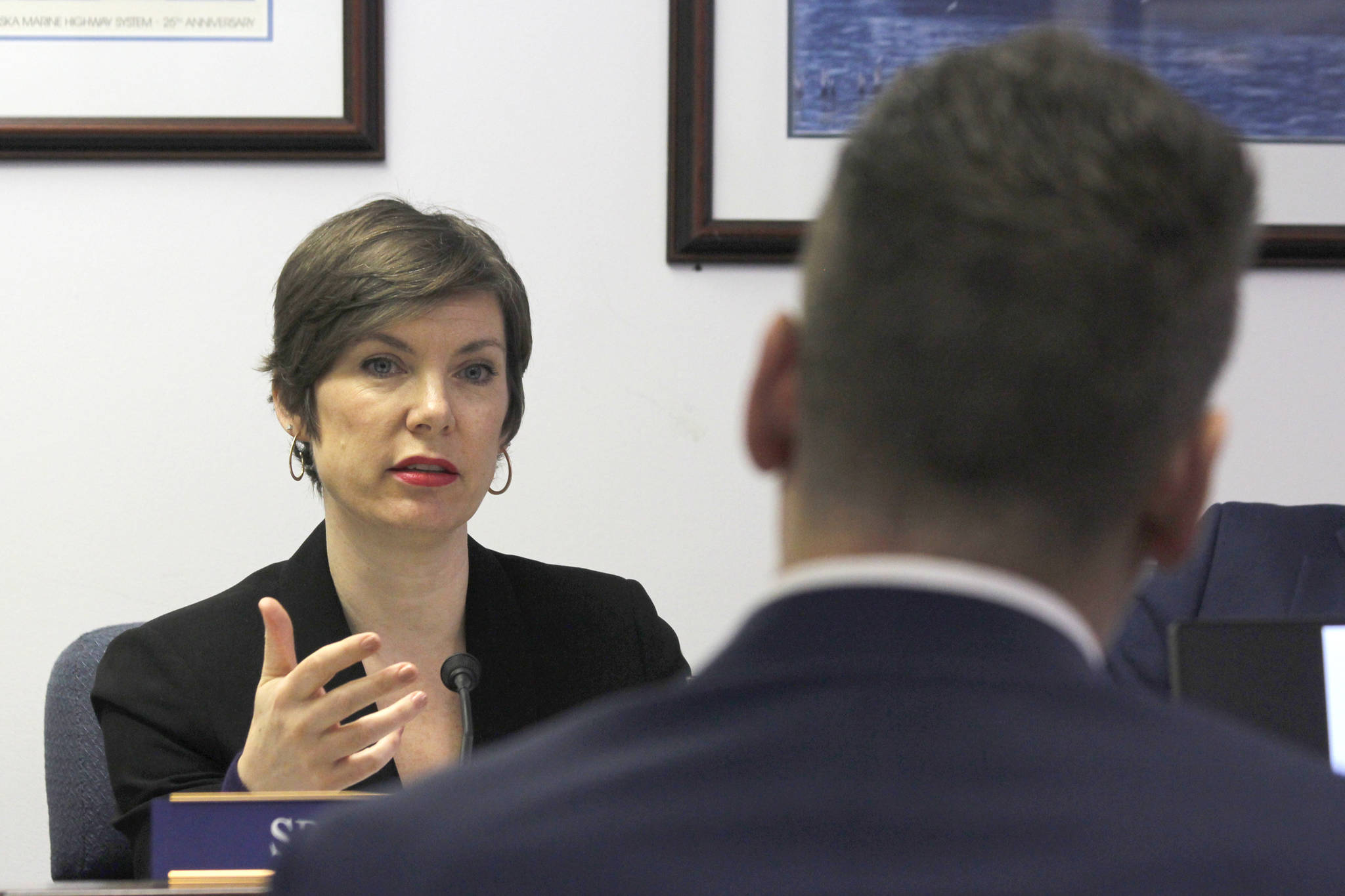One of the smaller cuts in Gov. Mike Dunleavy’s proposed budget came under scrutiny Tuesday, as members of the House Finance Environmental Conservation Subcommittee questioned the proposal to cut a program that aims to cut down on cruise ship pollution.
The Ocean Rangers program, which was created by a statewide ballot initiative in 2006, puts a qualified marine safety and environmental protection official on all cruise ships that enter Alaska waters. These professionals monitor the cruise ships’ compliance with state and federal requirements about pollution, as explained on the Department of Environmental Conservation’s website.
The program is funded by a $4 fee that passengers pay, which collects about $4 million per year. As DEC Administrative Services Director Jeff Rogers said in Tuesday’s meeting, funding for the program does not come out of the state’s general fund.
[First study in 17 years will examine pollutants in Juneau’s air]
Still, the governor’s proposed budget includes cutting the program. Rogers explained that when the governor’s office directed state agencies to examine which programs could be cut, DEC officials identified Ocean Rangers as a low priority.
“I don’t think the intention was to save the passenger $4,” Rogers said. “The intention was to rise to the governor’s challenge to eliminate programs that are inefficient.”
According to numbers Rogers presented, Ocean Rangers have reported six violations in the 11 years. Over the same period, there were 238 other reports of violations that stemmed from cruise companies self-reporting or other staff inspections.
Senate Bill 70, proposed by Dunleavy, would cut the Ocean Rangers program. In his transfer letter accompanying the bill, Dunleavy wrote that eliminating the program “does not significantly affect the regulation of cruise ships in state waters” and that cruise ships are still held to wastewater and air quality standards.
Members of the committee didn’t agree. Rep. Ivy Spohnholz, D-Anchorage, talked about how her father was a law enforcement officer and just having his car around helped deter people from speeding or driving recklessly. Having an Ocean Ranger on board, she said, could have the same deterring effect for cruise ship employees who might violate regulations and not report them.
Rep. Zack Fields, D-Anchorage, was particularly adamant throughout the meeting that the Ocean Ranger program is valuable and deserves to be continued.
[Opinion: DEC Cruise Ship Program protects Alaska’s air and water]
Fields pointed to the case of Princess Cruise Lines having to pay a $40 million fine for illegally dumping waste and falsifying records about it. The Caribbean Princess cruise ship was found to have illegally dumped waste numerous times over an eight-year span, according to the U.S. Department of Justice. Fields used the example to illustrate that not all cruise ships and companies self-report, and just one vessel can cause a great deal of damage.
“It only takes preventing one of these incidents, one ship from systematically dumping into our waters for the program to be worth it, considering it’s being paid for by user fees,” Fields said during the meeting.
The Senate Resources Committee will hear public testimony about SB 70 at 3:30 p.m. Wednesday in room 205 in the Capitol. People have until 4:30 p.m. to sign up.
There were a variety of metaphors used during Tuesday’s meeting to describe the Ocean Rangers impact and importance, and Fields ended the meeting with a particularly biting one. He argued that just because the rangers haven’t been catching tons of violations doesn’t mean that there aren’t violations that need to be caught.
“If I was walking around in a rainstorm carrying around an umbrella, and I was dry, then I would be an idiot to throw that umbrella away because I was dry and therefore I don’t need an umbrella,” Fields said.
• Contact reporter Alex McCarthy at amccarthy@juneauempire.com. Follow him on Twitter at @akmccarthy.

